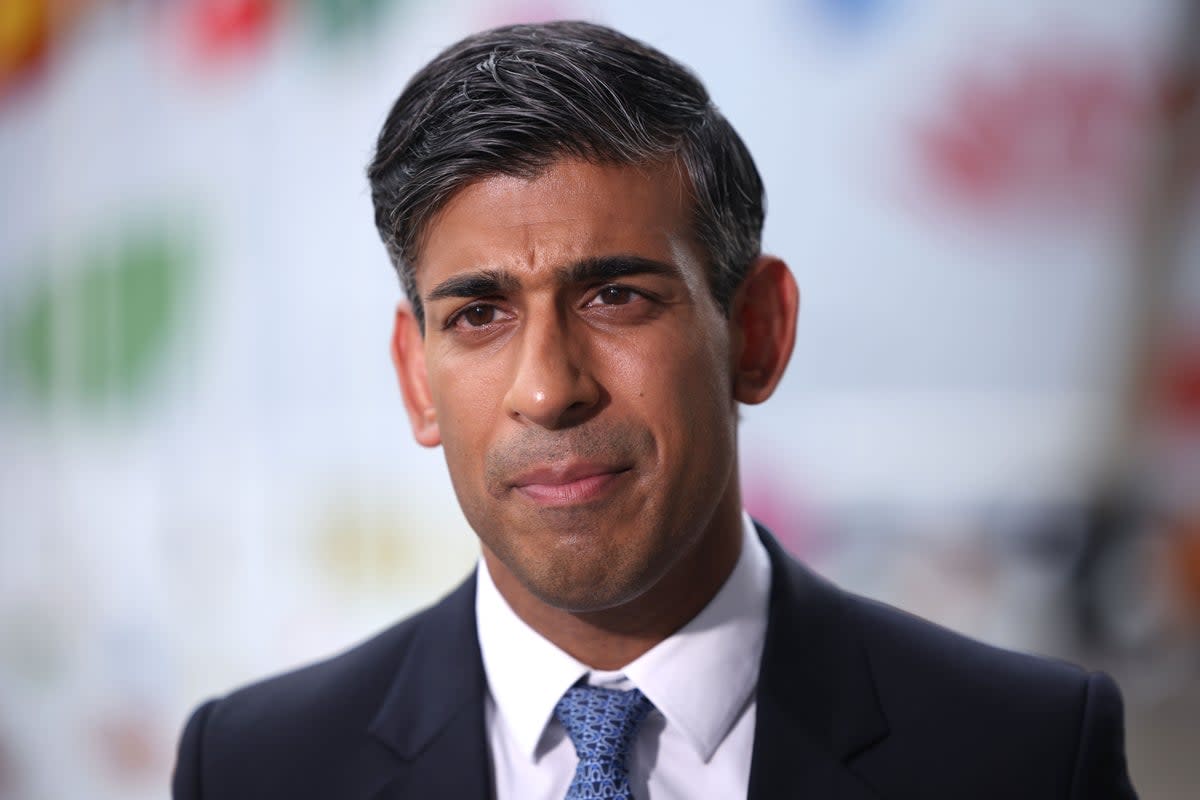Car giant Ford slams delaying 2030 ban on new petrol and diesel cars in UK as Sunak ‘considers’ the move

Car giant Ford slammed delaying the 2030 ban on new petrol and diesel cars in the UK amid reports that Rishi Sunak may push it back five years.
In a hard-hitting intervention in the eco-storm engulfing the Prime Minister, the company called for “ambition, commitment and consistency” from the Government over the switch to electric vehicles.
Lisa Brankin, Ford UK chair, said: “A relaxation of 2030 would undermine all three. We need the policy focus trained on bolstering the EV (electric vehicle) market in the short term and supporting consumers while headwinds are strong: infrastructure remains immature, tariffs loom and cost-of-living is high.”
But Home Secretary Suella Braveman warned against “arbitrary” and “punitive” targets as she refused to back the 2030 goal for no more new petrol or diesel cars being sold.
She told LBC: “We’re absolutely committed to rolling out our net zero commitments by 2050, in line with our international commitments.”
But she added: “We’ve got to remember these targets are goals, not straitjackets, and we’re not going to save the planet by bankrupting the British people.”
She could not explain how the targets would “bankrupt” people but argued that taxpayers and people household budgets should come “first”, before tackling the existential threat of climate change.
Another automotive industry chief warned that a delay in the ban on conventionally fuelled new cars could put drivers off from switching to electric motoring.
Mike Hawes, chief executive of the Society of Motor Manufacturers and Traders, said the policy change will cause “concern” among car makers.
He told BBC Radio 4’s Today programme that high demand for electric cars within the UK is needed if more are to be built in the country.
He said: “You want to build close to where you sell, so you need a strong market here in the UK to help secure future investment.
“The concern now is, does this cause consumers to delay their purchase?”
Mr Hawes said he was “assured” on Monday that the zero emission vehicles mandate - a requirement for manufacturers to increase the proportion of new cars and vans they sell that are zero emission - will still be introduced.
It is due to be implemented from the beginning of next year.
Mr Hawes said: “We’re trying to understand what is going to happen next between this sort of statement (on the 2030 ban) and that policy, and the message it sends consumers which must be incredibly confusing.”
Ian Plummer, commercial director at online vehicle marketplace Auto Trader, said: “Pushing back the 2030 ban on new petrol and diesel sales by five years is a hugely retrograde step which puts politics ahead of net zero goals.
“This U-turn will cause a huge headache for manufacturers, who are crying out for clarity and consistency, and it is hardly going to encourage the vast majority of drivers who are yet to buy an electric car to make the switch.
“Rather than grasp the challenge and use the tax system to ease concerns over affordability, the Prime Minister has taken the easy option with one eye on polling day.”


